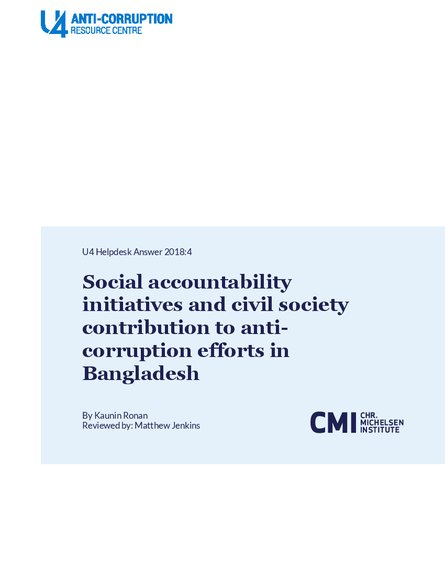
While scoring very poorly on Transparency International’s Corruption Perception Index, Bangladesh has recorded moderate to good progress on other indicators of socio-economic development, leading some to speak of a “Bangladesh paradox” (US Department of State 2016; Mushtaq Khan 2017; Transparency International 2018).
Moreover, despite the myriad challenges civil society groups face, ranging from government backlashes to threats from rising radical groups, there remain a number of civil society organisations actively engaged in anti-corruption efforts in Bangladesh.
Anti-corruption initiatives of the Bangladeshi civil society are undertaken largely by not-for-profit non-governmental organisations, mostly in the form of increasing accountability of government institutions and setting the stage for participatory governance, especially at the local level (for example, BRAC and Shujan).
While larger bodies, like Transparency International Bangladesh and Centre for Policy Dialogue, offer research and advocacy for the national level, other decentralised organisations, like Manusher Jonno and DW Akademie, focus on the grassroots or a particular sector (radio communication in the case of the latter). Media houses, especially print dailies like Prothom Alo and The Daily Star, serve a watchdog function.